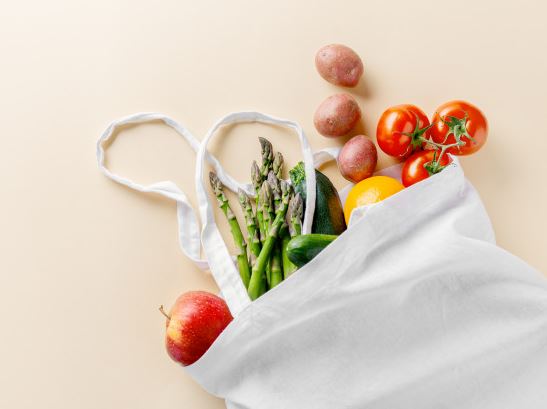As we age, maintaining a healthy and balanced diet is less about growth and development, and more about maintaining and sustaining an active and healthy lifestyle for as long as possible. Food shopping with this in mind can be challenging.
As we all know, there are weight and age-related conditions that can be made worse by poor food choices. When shopping for groceries, an elderly person or their caregiver should think about what they need to eat on a daily basis, and over the next few days. They should remember to include food items that contain nutrients. Real food is always the better choice over processed foods that come in boxes or bags.
Nutrients. Some nutrients are more important to the elderly such as calcium, iron, vitamin C, vitamin D and zinc. Calcium helps to maintain healthy and strong bones, but it is absorbed back into the body as we age causing osteoporosis, which weakens the bones and makes them fragile and brittle. Dairy products are a great source of calcium. Iron is found in some vegetables and meat. It is a component of our blood and carries oxygen around the body. Lack of iron can cause anemia.
Vitamins. You can obtain vitamin C from supplements or from digesting fruit and vegetables, so you should add some to your shopping list. Vitamin D helps the body make use of calcium and helps to reduce the amount of calcium we lose from our bodies. Buy milk and yogurt to increase your calcium uptake. Spending time in the sun is a common source of vitamin D, but supplements are also available. Zinc helps the body maintain its immune system and is found in pulses, whole meal bread and meat.
Plan ahead. Only buy small amounts of food items that you can manage to eat within a few days. Remember that some vegetables can be bought frozen and cooked so that you can portion them so that they are not wasted. Meat can be cooked, and eaten hot or cold. Batches of meals can be frozen as well so that they can be microwaved or warmed up later. Fruit should be kept in a cool place and will last a few days.



